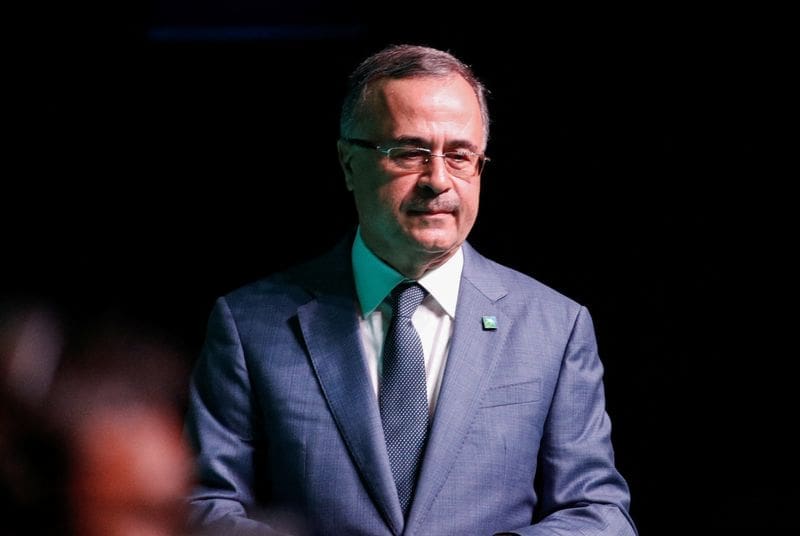At an industry event in Riyadh two years ago, the Saudi energy minister paused at about 9 p.m. in front of some 1,000 people and told them it was bedtime for Amin Nasser, the chief executive of giant state-owned oil producer Saudi Aramco.
He was not joking.
Over a career of four decades, Nasser has earned a reputation for a style of dedication that means he will be making sure he’s ready for the challenges of the day ahead, not mingling into the early hours.
“It was kind of embarrassing you know with protocol and all these things, but it goes to show his work ethic and all that he tends to do to stand out,” said an industry source, speaking on condition of anonymity.
Nasser has been patiently preparing for years for the order to sell more shares in Aramco, after managing the company’s initial public offering in a record $29.4 billion listing in 2019.
The landmark deal is a major part of Crown Prince Mohammed bin Salman’s drive to diversify the economy away from oil. The Saudi oil giant is one of the world’s most valuable companies.
While juggling the daily management tasks of a company with over 73,000 employees, Nasser has also addressed the questions that surround how to meet the world’s energy needs and become increasingly outspoken on the issue.
HOMEGROWN TECHNOCRAT
Under Nasser, Aramco has invested in refineries and petrochemical projects in China and elsewhere, expanded its retail and trading businesses, and sharpened its focus on gas, making its first foray into liquefied natural gas abroad last year.
Before becoming CEO in 2015, The homegrown technocrat was an unknown quantity in the West. In contrast to other Aramco CEOs, he is not a product of a major U.S. university and instead climbed the company’s ranks after receiving a Saudi education.
Nasser began his career as a petroleum engineer. Before becoming CEO, he held positions including vice president of upstream when he led the company’s largest capital investment programme in its integrated oil and gas portfolio.
To steer the company smoothly, he has to retain the support of two of the most powerful figures in the kingdom: Energy Minister Prince Abdulaziz bin Salman and Yasir al-Rumayyan, governor of Saudi sovereign wealth fund PIF who is also chairman of Aramco’s board of directors.
Nasser has become highly popular at Aramco by promoting a decentralised culture and spending time with both leaders and workers, analysts say.
During the Muslim fasting month of Ramadan, he makes a point of visiting an Aramco field or plant every evening and breaking the fast with crews.
Pleasing the elite is also part of his job. That means keeping the petrodollars flowing, including for the ambitious economic diversification plan of Crown Prince MbS, as he is commonly known, that includes a massive urban and industrial development project nearly the size of Belgium to be built along the Red Sea coast, NEOM.
“Nasser’s job is way bigger than that of the typical oil company CEO. His job is not just producing and marketing oil, but also keeping the Saudi government supplied with the revenues necessary to remain afloat,” said Jim Krane, energy research fellow at Rice University’s Baker Institute and author of the book Energy Kingdoms.
“The security of the Saudi royal family depends to a large extent on his success.”
One of Nasser’s biggest tests came in 2019 when drones and missiles struck Aramco’s Abqaiq and Khurais oil plants and halved Saudi Arabia’s crude output.
The United States and Saudi Arabia blamed Iran for the attack. Tehran denied any involvement.
Nasser was at the Aramco emergency unit within seven minutes, said the industry source. He did not micro-manage and gave managers in the field the freedom to make decisions during a high-pressure moment.
“Despite 50% of Aramco’s operations being impacted by the attack, within a matter of a few weeks, Aramco was able to restore the bulk of its operations,” said Mazen Alsudairi, head of research at Al Rajhi Capital.
“This was possible because he continued the strong risk management policy of the company that leaves no scope for leniency.”
Source: finance.yahoo.com





